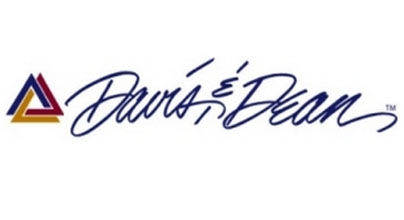
- Overview
- Skill Learning
- FAQ
- How We're Different
- PMI
- Course Evaluation
- Research Summary
- Simulation Training
 |
 |
 |
Managing By Project:
Can you meet or beat the three objectives of project management-time, cost and scope---consistently?
Do you know how to use the basic tools of project management---Project Charter, Work Breakdown Structure, Network Diagram, Bar Chart, Risk Management Plan, Communications Plan and KPIs---together?
Is your project team “real--time”? Can you properly resize your staff and other resources to address your current specific needs---quickly and with certainty?
In terms of human assets, do you know who's best at what? Who works best with whom? Whose personality (not just skills) fits the team? Do you know how to lead this team without line authority---and have peoples' full commitment?
Increasingly, work is done by real-time, project---specific teams. As the core of an organization shrinks, better use must be made of the resources that remain and of contractors, temporaries, and part---timers. The complex resource management challenges that result are natural applications for project management skills. These skills facilitate any activity comprised of defined interrelated tasks that must be completed on time and within budget, while meeting specified customer requirements.
You can choose from three projects: construction, hardware/software integration, or site security implementation. All learning conforms to the current standards of the Project Management Institute.
This workshop is designed specifically for those who must create projects from the ground up and then manage them. It is equally valuable for technical and non-technical managers, and is useful to individual contributors as well as to project leaders. Both line and staff functions will benefit from attendance, and university research shows that whether you are a seasoned project manager or new to management, you will grow and learn from this experience.
Learning Objectives
In this powerful three-day workplace simulation, you will learn to . . .
- Manage by project
- Use fundamental project management principles and tools
- Organize and lead a project team
- Plan, schedule, and control a project
- Get quality work done on time and on budget
- Emphasize the human side of project management
- Experience a project from beginning to end
- Value the customer's viewpoint
For more information about this workshop download the Managing By Project
Brochure (2 pages) ![]() or Booklet (31 pages)
or Booklet (31 pages) ![]()
PMI ®, PMP ® and PMBOK ® are registered trademarks of the Project Management Institute.
Much of the training that goes by the name CBT is automatic page turning, and at its best is one-dimensional. Davis&Dean simulations are very different. They are actual three-dimensional slices of life, replications of the workplace with its work requirements, conflicting demands, dilemmas, pressures, and interpersonal stresses. They demand that students learn new technical and relationship skills and then apply them to real-life situations.
So simulations are more like war games or video games?
There are important differences. We do not produce games, and our students do not play. War games assume there is a loser for every winner. That is not our view of the world, nor is it historical reality. Video games assume a deterministic view of the world, in which things happen the same way time after time. This is also not a realistic view of an organization's workings. Our simulations are accurate mirrors of the workplace, slices of actual life, highly focused on project management skills, and reinforcing the personal competence and confidence of all who participate.
How do I know your simulations work?
Think of how you learned to drive a car. Did you practice behind the wheel or did you read a book about driving and then take the license exam? Our students become skilled by practicing the actual skills to be learned. We'll be happy to provide current references from customers upon request. It is our experience that students report this to be the best training they have ever had.
Our company is one-of-a-kind. An off-the-shelf training program is unlikely to work for us. Do you customize?
We have customized our training programs many times. Custom changes are made to your specification after consulting with you. Any of our courseware and software is readily modifiable to fit your needs exactly. If your need is for a complete ground-up design, we can develop it for you.
How can I be sure-can I try before I buy?
We suggest scheduling a pilot session for your company and inviting 12-24 of your best judges-project managers from your target audience. Or you might attend our public sessions, which are held from time to time in various locations.
We can't afford to have 24 people away for two days or three days-now what?
Our minimum class size is 12. You might consider cooperating with a non-competing organization nearby, or inviting your suppliers and customers to attend with you to fill a class.
What does a simulation cost?
You'll be surprised to learn that the cost is about the same as the cost of a "talking-head" lecture. And the intensity of student engagement is immeasurably higher. Of course the learning is vastly more successful.
Do you license the software and provide training for our trainers?
We have a well-tested program for training your trainers to conduct these simulations and have done it many times. A variety of license arrangements is possible, even to include exclusive ownership of a customized simulation.
Computer simulations have the advantage of allowing learners to make specific judgments, some of which will be correct and also to make errors without impacting a real project. The process of iterative learning through assessment, evaluation, decision making, and error correction creates a much stronger learning environment than passive instruction. Additionally it allows individuals to experience the entire spectrum and all phases of project experiences in a dramatically shorter period of time. In the real world turning back the clock of time is not possible and decisions made or not made must be lived with. Learning by simulation is safe structure that has a specific goal in mind which is to:
“mimic, or simulate, a real system so that we can explore it, perform experiments on it,
and understand it before implementing it in the real world.”
What Computer Simulations Add to Traditional Thinking:
- Learning medium is a computer based simulation, in which students are immersed in a realistic and intense workplace.
- Emphasis is on skill learning, on productive competency, in addition to knowledge competency.
- Emphasis is on repeated practice until skills feel natural, in addition to a solid basis in theory.
- Davis&Dean instructors are practicing experts in the field, with advanced degrees, long experience, plus added training in facilitation skills and certification in our workshops.
- Davis&Dean workshop design is solidly based on theories of adult learning and effective adult learning environments
Learning Simulations can be far better than experience because they can compress time and remove unneeded details. Unlike real life, simulations are optimized for learning. Anyone who has experienced a valid simulation knows that it can provide a engaging learning experience, where skills, process, and both explicit and tacit knowledge can all be enhanced in a way reality cannot. The ability to search, discover, experiment, and repeatedly apply this knowledge to unlimited model situations is what makes simulation one of the most versatile forms of learning available.
Why Choose Davis&Dean Simulations:
- Davis&Dean workshop designs and software have been continuously improved for more than 18 years, incorporating ideas and suggestions from clients, instructors, and over 75,000 workshop participants.
- Davis&Dean simulation is designed as a neural network, and is based on an expert system, all part of artificial intelligence.
- Davis&Dean simulations are highly discriminating -- student results vary according to the quality of their decisions over the long run. Strategic thinking is rewarded.
- Projects run for 16-24 simulated weeks, sufficient iterations for students to practice their new skills enough to feel natural applying them.
- Projects run for 16-24 simulated weeks, giving teams time to experience all the stages of team formation: form, storm, norm, perform
It is clear that if the learner finds the software engaging, they are bound to get more impact from it. Simulation software allows learning and training to actually be fun, which is crucial to mastering a subject and harvesting the key concepts for future use.
PMI Information
 Davis&Dean has been reviewed and approved as a provider of project management training by the Project Management Institute (PMI®). As a PMI Registered Education Provider (R.E.P.),Davis&Dean has agreed to abide by PMI established quality assurance criteria.
Davis&Dean has been reviewed and approved as a provider of project management training by the Project Management Institute (PMI®). As a PMI Registered Education Provider (R.E.P.),Davis&Dean has agreed to abide by PMI established quality assurance criteria.
The Davis&Dean "Flight" Simulations for Leaders workshops provide participants with actual hands-on project management experience. These workshops take you beyond project management knowledge. They put your knowledge to work, as you practice project management skills until they become natural habits. You practice both the technical skills of project management that are the primary focus of the Project Management Professional (PMP) exam, and the important human dimensions of managing projects and project teams. Complete descriptions of our workshops are available in the "Workshops" section.
PMP Certification: Davis&Dean workshops are not PMP exam preparation courses. They are much bigger than that. You would take one of these workshops to learn how to manage a project, not how to pass a test. That said, our workshops are consistent with and fully support PMI's copyrighted A Guide to the Project Management Body of Knowledge (PMBOK®).
Flight Simulations for Leaders
The following "Flight" Simulations for Leaders™ workshops have been registered for Professional Development Unit (PDU) credit through the R.E.P. Program:
Managing By Project (MBP)
| Activity Number | Contact Hours (PDUs) |
| Simulation: 2155-000008 | 3 days / 24 PDUs |
Participants become skilled project managers by practicing PM skills on a real project. They create a project beginning with scope definition, and continuing with task list, work breakdown structure, network diagram, and bar chart. They allocate resources, generate a risk management plan and key performance indicators, then customer specs on time and budget.
Audience Level: Mixed
PMBOK® Processes: All
PMBOK® Knowledge Areas: All
Managing Projects (MP2)
| Activity Number | Contact Hours (PDUs) |
| MP2502 | 2 days / 16 PDUs |
Participants manage an actual project, allocating resources and applying all the basic PM principles and tools to do quality work on time and budget. They are challenged with a tight schedule and budget, requiring close attention to day-to-day project management, from planning through execution and control of the project's progress.
Audience Level: Mixed
PMBOK® Processes: All
PMBOK® Knowledge Areas: All
Leading High Performing Project Teams (LPT)
| Activity Number | Contact Hours (PDUs) |
| Simulation: 2155-000009 | 2 days / 16 PDUs |
Participants apply the Five Practices of Exemplary Leaders and Eight Dimensions of High Performing Teams, identified by world-class research, to a process improvement project. They learn to get genuine commitment and motivation by applying these new skills without line authority and by creating a project environment of good relationships.
Audience Level: Mixed
PMBOK® Processes: All
PMBOK® Knowledge Areas: Project Human Resource Management, Project Time Management, Project Quality Management, Project Scope Management, Project Risk Management, Project Cost Management, Project Integration Management and Project Communications Management.
Guiding Organizational Change (GOC)
| Activity Number | Contact Hours (PDUs) |
| Simulation : 2155-000016 | 3 days / 24 PDUs |
Participants learn to Guide (in addition to managing and leading) the Transition Process, Creative Process, LEVERage, and Points of No Return to succeed with organizational project, and life changes. They learn to make organizational changes quicker, smoother, and with better outcomes by practicing their new skills on a real project.
Audience Level: Mixed
PMBOK® Processes: All
PMBOK® Knowledge Areas: Project Human Resource Management, Project Time Management, Project Quality Management, Project Scope Management, Project Risk Management, Project Cost Management, Project Integration Management and Project Communication Management.
Rocky Peak Leadership Center's Davis&Dean workshops are scheduled in-house by clients worldwide. A few open-enrollment workshops are scheduled each year.
Please contact Rocky Peak Leadership Center's office to schedule a workshop or to obtain additional information. The office can be reached at 1-(818)-730-8203 or by emailing us at dale@rockypeaklc.com
Our simulation-based workshops and highly credentialed trainers are exceptionally effective in helping you become skilled in project management. One participant who was completing his company's year-long management development program saw clearly the difference between "knowing" and "doing."
"The best was saved for last! After spending a whole year being lectured by consultants, finally a workshop which delivered extensive learning opportunities. The workshop was also run brilliantly. I was particularly impressed with how the facilitator sped through the lecturing and allowed for us to spend time learning by doing."
PMI ®, PMP ® and PMBOK ® are registered trademarks of the Project Management Institute.
The Davis&Dean three-day computer simulation, Managing by Project, was used by Dr. John McCreery at North Carolina State University’s College of Management in two graduate courses in 2001. Sixty percent of the 63 students were enrolled in a Master of Science in Management program, and most had technical undergraduate degrees. The other forty percent were enrolled primarily in engineering graduate programs. Nearly all had prior work experience. Their specific project experience ranged from none to 26.5 years.
Knowledge and skills in sixteen areas of project management were measured before and after the simulation training. He found significant learning in all sixteen project management areas. In his words:
“Participants significantly improved their scores in all [sixteen] areas, both in level of knowledge and in ability to apply their knowledge. . . . There is a general consensus among the participants that the exercise provides a much needed context within which to improve project management skills. . . . Participants are able to ‘make the connection’ between theory and practice, thereby gaining a deeper understanding of how to manage an actual project.”
Learning results were next viewed in terms of prior project work experience. The low experience quartile (14 participants with no prior PM experience) increased their knowledge significantly, but only somewhat more than the top quartile (who averaged 10.7 years’ experience). This was a surprise to the researchers. Also unexpected was that;
“both less experienced and highly experienced participants made equivalent, substantial gains in the ability to apply their project management knowledge. . . . This indicates a robustness in the training exercise, providing value to relative project novices and experts alike.”
The research finally asked if the quality of a classroom team affected an individual participant’s learning. Quality of team experience was measured two ways: first, whether the team met the project’s budget and schedule goals, and second, whether the team processes were felt to be positive or negative.
“There is no substantial evidence to support the view that objective team performance [schedule and budget] has an impact on the educational value of the exercise,” and looking at team processes, “There are no significant differences in any of the process sub-group and the positive team process sub-group.”
It doesn’t matter whether a participant team succeeds as project managers or as a functioning team; participants learn to manage projects just the same.
These are the major findings of the research. Details are available in the full article, which was published in the May 2003 issue of the International Journal of Project Management.
For information on cost and event booking, email RPLC
